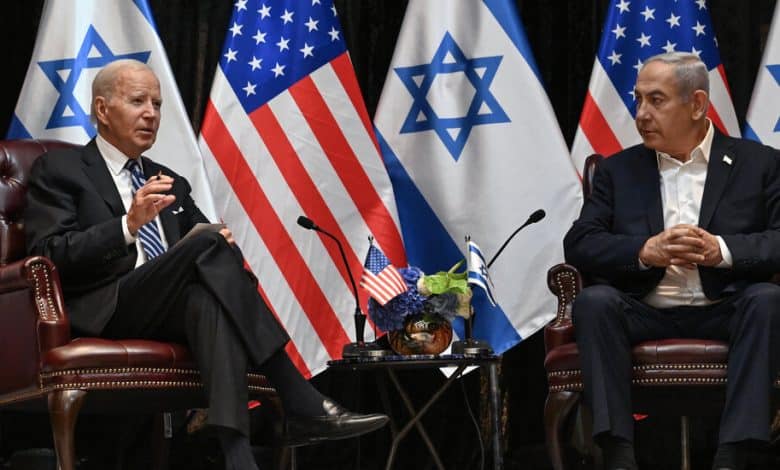Domestic Political Pressures Widen Divide Between Biden and Netanyahu

Relations between President Biden and Prime Minister Benjamin Netanyahu of Israel appear to have sunk to a new low, with both men pressed hard by domestic politics and looming elections.
Mr. Biden is facing outrage from global allies and his own supporters about the toll of civilian deaths in the war against Hamas and Israel’s restrictions on allowing food and medicine into Gaza amid critical shortages. On Monday, Mr. Biden allowed the U.N. Security Council to pass a resolution demanding an immediate cease-fire in Gaza, as the U.S. ambassador abstained rather than vetoing the measure, as the United States had done in the past.
In response, Mr. Netanyahu, who is trying to keep his own far-right coalition government in power, called off a planned high-level delegation to Washington for meetings with U.S. officials to discuss alternatives to a planned Israeli offensive into Rafah, the southern Gaza city where more than a million people have sought refuge.
Mr. Netanyahu, however, allowed his defense minister, Yoav Gallant, to remain in Washington for talks with top Biden administration officials.
Those are “the talks that matter,” said Martin Indyk, a former U.S. ambassador to Israel. He said Mr. Netanyahu’s cancellation of the other meetings, a public poke in the eye of the American president who requested them, “is strictly performative.”
Mr. Netanyahu is facing sharp criticism from his far-right coalition partners, Itamar Ben-Gvir and Bezalel Smotrich, over any indication that he is hesitating in the war against Hamas or in the expansion of Israeli settlements in the occupied West Bank. His wartime government is also deeply divided over proposed legislation that could end up drafting more ultra-Orthodox Israelis, known as Haredim, into the military — a vote that was suddenly postponed on Tuesday morning.
